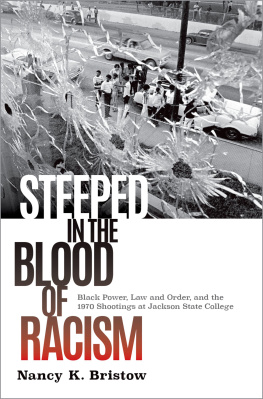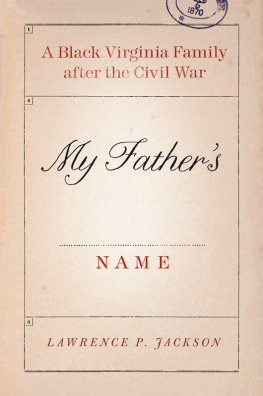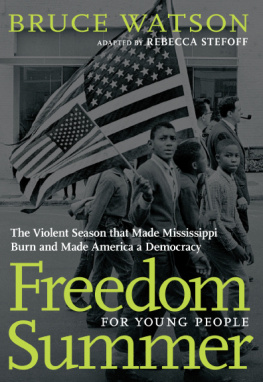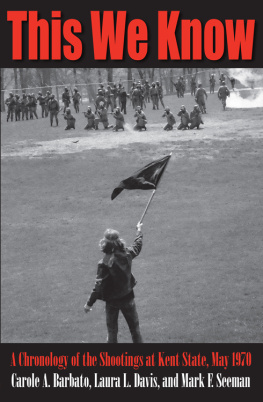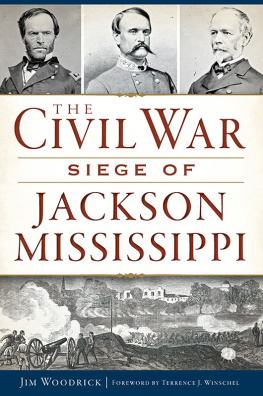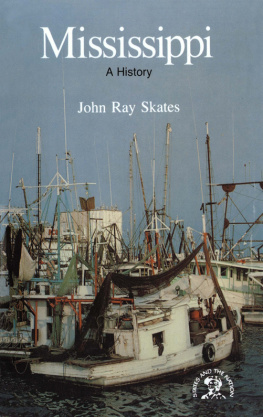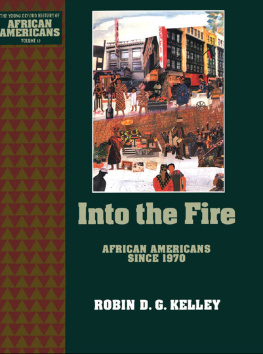Steeped in the Blood of Racism

Oxford University Press is a department of the University of Oxford. It furthers the Universitys objective of excellence in research, scholarship, and education by publishing worldwide. Oxford is a registered trade mark of Oxford University Press in the UK and certain other countries.
Published in the United States of America by Oxford University Press
198 Madison Avenue, New York, NY 10016, United States of America.
Oxford University Press 2020
All rights reserved. No part of this publication may be reproduced, stored in a retrieval system, or transmitted, in any form or by any means, without the prior permission in writing of Oxford University Press, or as expressly permitted by law, by license, or under terms agreed with the appropriate reproduction rights organization. Inquiries concerning reproduction outside the scope of the above should be sent to the Rights Department, Oxford University Press, at the address above.
You must not circulate this work in any other form and you must impose this same condition on any acquirer.
Library of Congress Cataloging-in-Publication Data
Names: Bristow, Nancy K., 1958author.
Title: Steeped in the blood of racism : black power, law and order, and the
1970 shootings at Jackson State College / Nancy K. Bristow.
Description: New York, NY : Oxford University Press, [2020] |
Includes bibliographical references and index.
Identifiers: LCCN 2019039307 (print) | LCCN 2019039308 (ebook) |
ISBN 9780190215378 (hardback) | ISBN 9780190092108 (epub) |
ISBN 9780190092092 (updf) | ISBN 9780190092115 (online)
Subjects: LCSH: Jackson State CollegeHistory. | Jackson State College Shootings,
Jackson, Mississippi, 1970. | African AmericansCivil rightsMississippiJackson. |
Black powerMississippiJackson. | Student movements
MississippiJacksonHistory20th century. | RiotsMississippiJackson
History20th century. | MurderMississippiJacksonHistory20th century. |
Police shootingsMississippiJacksonHistory20th century. |
Jackson (Miss.)Race relations.
Classification: LCC LD2596. J22 B75 2020 (print) |
LCC LD2596. J22 (ebook) | DDC 378. 762/51dc23
LC record available at https://lccn.loc.gov/2019039307
LC ebook record available at https://lccn.loc.gov/2019039308
For all those injured in body, mind, or spirit by the white supremacist violence of May 15, 1970, and for all the others, terribly too many, before and since.

And for Gordon.
Contents
The story told in this book is not mine but belongs to those who suffered through the violence of May 15, 1970. As Robert Luckett, Jr. said to me early in my work, The stories that they are telling are emotional, and are emotional to them, to this day.... They own those stories. It has often felt the height of hubris to be writing this book. Living in this world as a white person, I cannot know the full horror white supremacy has enacted in the lives of those about whom I write. I must begin these acknowledgments by recognizing this truth. Another truth convinced me, even so, to proceed with this work. I believe in the power of knowing our history. As the great James Baldwin told us, An invented past can never be used; it cracks and crumbles under the pressures of life like clay in a season of drought. We must face the nations true history, including the racial violence that has functioned to contain and constrain the lives of people of color in this country from its beginnings. The violence of institutionalized white supremacy persists throughout our livesin our economy, our politics, our schools, our criminal justice system, and beyondeven as its advocates find allies in positions of power, leaders willing to speak the falsehoods necessary to justify the inequities and iniquities racism produces. Only by rejecting the invented past used to shore up these systems can we build the just future every human being deserves. The shootings at Jackson State College, including the ugliness that caused them to happen and then helped them fade from too many peoples memories, belong in our national narrative, indeed, are essential to it. This story, put simply, needs to be told.
As this book goes to print, I am much humbled to have had so many people share their experiences with me and overwhelmed by the generosity of spirit they have expressed in allowing me to hold and to tell these stories. I only hope each of these people, too many to list here, will find and recognize their voices in these pages. I could not have written this book without them. In particular, I still marvel that Linda Braddy found her way to me, and I thank her and her brother Robert for their kindness and their willingness to open the doors of the Jackson State community to me. Dr. Hilliard Lackey blew those doors wide open in a remarkable tour of the city of Jackson and the Jackson State campus that has stayed with me throughout my work. C. Liegh McGinnis, Mamie Crockett, Ivory Phillips, James Lap Baker, Eddie Jean McDonald Carr, Robert Smith, John A. Peoples, Hillman Frazier, Lucius Edwards, and Ed Swinney were crucial guides on this journey, shepherding me toward a new understanding of these events. A number of people were willing to look past their own pain to make certain I learned what I needed to know. I thank especially Vernon Steve Weakley and Leroy Kenter for sharing with me the range of ways this violence wounded them, and Larry Breland for sharing the joy of his friendship with Phillip Gibbs and the deep sorrow his loss has meant. Two of James Earl Greens siblingsMattie Hull and Gloria McCrayshared their stories so that their brother might come to life for me. Their courage and their kindness inspire me daily. Constance Iona Slaughter-Harvey has been a beacon for me throughout this work. Her critical questions as I began grounded me in an awareness of what is at stake in this history. Her embrace of this project and of me, as well as the model she provides of a lived commitment to justice, have and will always sustain me. I understand the responsibility the generosity and trust so many people have offered me carries and have been guided by this charge in every word I have written. I dedicate this book, in part, to all those who suffered through this horrific violence and its consequences.
This book was long in the making, and so also was its author. Both required the support, guidance, and mentoring of many, many people. As every historian knows, librarians and archivists are at the heart of our work, and I am, as always, deeply indebted to several who have shared their professional expertise as well as their time and energy with me. It is literally true that I could not have completed this project without their assistance. At the Mississippi Department of Archives and History I owe a particular debt to Jean Hudspeth, Grady Howell, Clinton Bagley, and Joyce Dixon. At Jackson State University I have had long-standing assistance from the universitys archivist, Darlita Ballard, who has met each of my cries for help with grace and expert assistance. I thank Debra McIntosh for guiding me through the Millsaps College Archives. At Kent State University Amanda Faehnel and Elizabeth Traina were unwavering in their ready and expert assistance. At the University of Puget Sound Stephen Philbrook offered crucial technological support early on. Peggy Burge has long supported me, and I thank her, and my students thank her, for making me a stronger scholar and a more effective teacher through her efforts.

